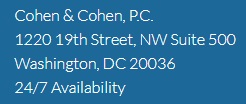What Happens at a Traffic Court Hearing?
If you’re like most people, appearing in traffic court likely is your first encounter with the judicial system. You therefore may be nervous and apprehensive about what to expect.
Actually, some of the most important traffic court things happen before you enter the courtroom. For instance, make sure you give yourself plenty of time to arrive on time after finding a parking space and getting through the security measures that basically all courts have instituted. Also, be sure to dress appropriately. Judges have a great deal of discretion with regard to how they conduct their courtrooms, and some judges evict defendants who show up wearing jeans, t-shirts, shorts, halter tops or other apparel the judge deems inappropriate.
Arraignments
If this is the first time you’ve appeared on a specific ticket, it’s your arraignment hearing. When the judge calls your name, you and your attorney, if you have one, approach the bench, i.e., the large desk at which the judge sits, usually located on a platform higher than the rest of the courtroom.
The judge will read the charge(s) against you and ask you how you want to plead. If you plead guilty, the judge will tell you the fine and court costs you’ll need to pay and the date by which you need to pay them. If you plead not guilty, the judge will either proceed immediately to your trial or what’s more likely is that he or she will set a new court date.
Trials
If you choose to go to trial, you should seriously consider hiring an experienced local traffic court lawyer to represent you. While you have every right to represent yourself, this is unwise. Why? Because you, as a layman, have little, if any knowledge of court rules, procedural rules or evidentiary rules. The prosecutor does, of course, which puts you at a great disadvantage if you choose to represent yourself. If you are looking for a traffic ticket attorney in New Jersey, then a firm like Rispoli & Borneo, PC can help answer your questions or begin your case.
Step by Step Trial Process
Traffic court cases are almost always tried to the judge only, not a jury. The prosecution goes first. The prosecutor will call the officer who issued your ticket to the witness stand. If the officer is not present, the judge likely will dismiss the charges against you.
If the officer is present, the prosecutor will question him or her about the circumstances surrounding your ticket. This is called the direct examination. You or your attorney then have the opportunity to cross-examine the officer. This procedure repeats for each witness the prosecutor calls.
Then, it’s your turn to call your own witnesses. You are never under any obligation to testify on your own behalf, but you can if you choose. If you do though, the prosecutor can cross-examine you.
Finally, after both sides present all their evidence, the judge decides whether or not to find you guilty of the charges against you.

